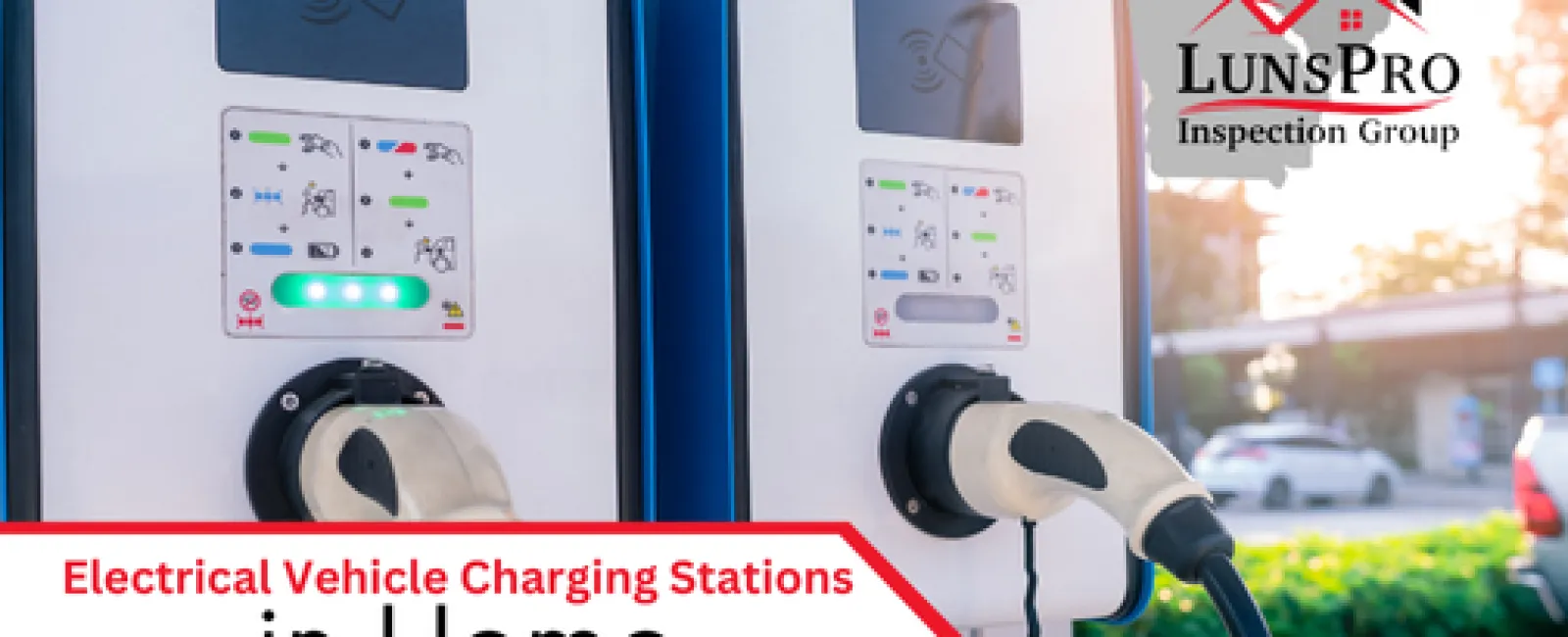As the adoption of electric vehicles (EVs) continues to rise, more homes are equipped with EV charging stations. These installations are crucial for EV owners, providing the necessary infrastructure to keep their vehicles charged and ready. However, understanding the role of these charging stations in the context of a home inspection is vital, especially for prospective buyers.
Britt B., a senior ASHI-certified inspector with LunsPro Inspection Group, recently shed light on this topic during a home inspection in Alpharetta, Georgia. Let's delve into his insights and explore the importance of inspecting EV charging stations.
The Growing Presence of EV Charging Stations
Britt B. highlighted a critical point: as EVs become more prevalent, so do the home-based charging stations. This trend signifies a shift in the housing market, where modern amenities like EV chargers are becoming a selling point. However, it's important to note that these installations aren't typically included in standard home inspections.
Exclusion from Standard Home Inspections
During his inspection, Britt B. came across an EV charging station in the garage. He pointed out that items like EV chargers are usually excluded from the home inspection checklist. This exclusion is primarily because home inspectors may not have the specialized knowledge or tools to thoroughly assess the electrical components and safety standards of these installations.
The Need for Specialized Inspection
Given the complexity and potential safety risks associated with EV charging stations, Britt B. recommends that homeowners and prospective buyers engage a qualified electrician to inspect these systems. An electrician can verify that the charging station is installed correctly, adheres to all safety regulations, and is functioning as intended. This step is crucial for ensuring that the EV charging infrastructure is safe and reliable.
Increasing Market Trends
Britt B. noted that the presence of EV charging stations is becoming more common in the real estate market. As a result, it's increasingly important for buyers to understand the implications of these installations. A properly installed and functioning EV charging station can add value to a property, but it's essential to ensure that it meets all safety and operational standards.
The Role of Home Inspectors
While EV charging stations might fall outside the typical scope of a home inspection, the role of home inspectors remains pivotal. Inspectors like Britt B. from LunsPro Inspection Group provide valuable insights into various aspects of a property's condition. Their expertise helps buyers make informed decisions, whether it's about structural integrity, HVAC systems, or other critical components of a home.
Ensuring Safety and Compliance
The recommendation to have a qualified electrician inspect EV charging stations underscores the importance of safety and compliance. These systems involve high voltage and complex wiring, making it essential to have them evaluated by professionals who specialize in electrical systems. This step not only ensures the safety of the residents but also prevents potential issues that could arise from faulty installations.
As the real estate market evolves, so do the features and amenities that buyers look for in a home. The rise of EVs and the corresponding need for home-based charging infrastructure is a testament to this shift. Understanding the role of EV charging stations in home inspections is crucial for both buyers and sellers.
LunsPro Inspection Group, with experienced inspectors like Britt B., provides comprehensive evaluations of residential properties, helping buyers navigate the complexities of modern homes. For specialized assessments, such as EV charging stations, engaging a qualified electrician is the best course of action to ensure safety and compliance.

